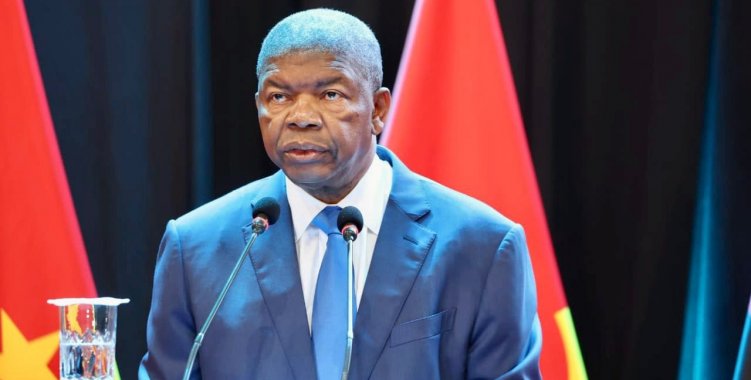João Lourenço's speech, this Friday, as part of the commemorations of the 15th anniversary of the Constitutional Court (TC), was delivered on the eve of a national demonstration, convened by civil society, to which party organizations were also associated, to protest against the increase in fuel prices, the end of street vending and the new law proposal for NGOs.
In an implicit message to the National Union for the Total Independence of Angola (UNITA), the main opposition party, which contested the results of the 2022 general elections, the head of state said that, in Angola, "there are those who have never recognized the results elections, showing that it does not respect the sovereign will of the people expressed in the polls".
"State institutions and patriotic civil society, committed to democracy, leave a clear message to those who seek to reach power by improper paths, by unconstitutional means: we are attentive and vigilant not to let this work that we are very proud of collapse, that of building a democratic state based on the rule of law", he warned.
João Lourenço spoke of the challenges at world level, in which peace and security are threatened by new conflicts, but also by the disrespect of the principles of democracy and by the electoral results, leading to the seizure of political power, by unconstitutional means, by forces that claim the power at any price.
"We are witnesses of situations like this, where the assault on power was embodied in the effective assault on the centers of executive power in some cases, and legislative power in others, fortunately neutralized for the sake of the survival of democracy", he stressed.
João Lourenço also stated that "democracy is not a perfect and finished regime, but a building under constant construction that requires a democratic political culture" and pointed out the contemporary requirements that "require permanent adaptation and demand an increasingly responsible posture in the face of challenges that the circumstances dictate".
For the leader, "the democratic political regime is only feasible in an environment of security and institutional stability" in which there is respect for differences and trust in institutions.
"Respect for the law and institutions is the basis for building a democratic state based on the rule of law", he reinforced, adding that "permanent and unfounded suspicion undermines the credibility of institutions and delays the process of consolidating democracy".
He therefore exhorted the TC and all other courts to "continue to be institutions of prestige", stressing that it is in everyone's interest to have a "strong, swift and fair justice capable of assuming its role with independence and impartiality".
About the TC, he said that he has been faced with several challenges to which he has been able to respond, whether at the time of electoral acts, or in the field of application of the rights of political parties.
João Lourenço highlighted, regarding the 15 years that the institution celebrates, that "various vicissitudes delayed the birth of the TC for many years" and considered that its institutionalization represented an important milestone in the consolidation of the democratic State and the rule of law in Angola.
He noted that periodic, free and fair elections are part of this process, as well as respect for citizens' freedoms and guarantees, as well as the obligation to comply with court decisions.
"Judicial decisions must be respected and complied with by citizens, companies, political parties and all public and private institutions", stressed the chief executive, adding that respect for court decisions is important to maintain stability and avoid conflicts and that the legal system provides for appeal mechanisms that can be used by anyone who feels wronged.
Laurinda Cardoso, president of the Constitutional Court, focused on the evolution of this body reflected in the 1,179 court cases filed to date, with 1,012 cases having ended (94 percent) and another 67 pending, around 6 percent, underlining the "low rate of pendency".
"With 15 years of existence, the TC is no longer exactly a child, it is already an emancipated teenager who requires serious and responsible work", concluded the judge, stressing that "in any institution, the starting point is people" .







